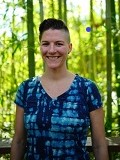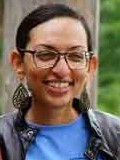Cultural Psychiatry
Curriculum
What is Cultural Psychiatry?
Cultural psychiatry operates under a framework that culture is learned, propagated, constantly changing, and affects how individuals understand mental health and behaviors. In many ways, culture can affect what symptoms individuals manifest, conceptualization of symptoms and mental illness, understanding of treatment, and impact patient- provider relationships. Cultural psychiatry is not limited to understanding racial/ethnic cultural influences but also the impacts of gender, sexuality, immigration, and socioeconomic status. Individuals are not bound to any one culture and may be impacted by the intersection of multiple cultural identities. (For a more in depth discussion, see Dr. Shim’s recent editorial on the evolution of cultural psychiatry.
The cultural psychiatry curriculum at UC Davis is integrated into the didactics in all four years of residency training. Elective opportunities are available in the PGY-2 and PGY-4 years to advance learning and integrate knowledge with clinical practice, research, and advocacy. Topics covered include:
| Ethnographies of Self | Refugee Mental Health |
| Cultural Psychiatry | Social Determinants of Mental Health |
| Cultural Formulation Interview | Structural Competency |
| Women’s Mental Health | Psychiatry and Spirituality |
| LGBTQ+ Psychiatry | Cultural Psychiatry and Psychotherapy |
| Transgender Mental Health | Trauma-Informed Care |
| Global Mental Health |
Sacramento
Sacramento remains one of the most ethnically diverse and integrated metropolitan areas in the country. As a result, UC Davis psychiatry residents receive a wealth of hands-on training working with individuals of various backgrounds across inpatient and outpatient settings. The UC Davis Department of Psychiatry and Behavioral Sciences recognizes the importance of providing culturally relevant care through its commitment to cultural psychiatry training.
What do UC Davis psychiatry residents think of the cultural psychiatry training here?
 |
“I am in the combined family medicine and psychiatry training program and the focus of my clinical work includes both outpatient community psychiatry and family medicine. I have a strong interest in cultural psychiatry and working with the underserved, both of which have been strongly supported, mentored and encouraged by the department.” - Luz Contreras-Arroyo, MD, PGY-5 |
 |
“I love Sacramento because it is a diverse city with lots of opportunities for community involvement. I am involved in LGBTQI healthcare and am the Medical Director for the student run hormone clinic at the Gender Health Center. I am also interested in trauma-informed care, cultural psychiatry, and interdisciplinary care.” - Cassy Friedrich, MD, PGY-5 |
 |
“I made the big step of moving from southern California to northern California specifically for combined training at UC Davis. We are very lucky to have a critical mass of IM-Psych and FP-Psych residents who are committed to thinking about the intersection of medicine and psychiatry and working with vulnerable populations. I also wanted to be at a residency that treated diverse patient populations and had an institutional focus on cultural psychiatry and social determinants of mental health.” - Christine Kho, MD, PGY-4 |
 |
“UC Davis's cultural psychiatry curriculum is one of the unique aspects of our program. I appreciate that all facets of cultural awareness are emphasized and discussed not only in didactics but also in all clinical settings. This prepares me to have deeper insights when seeing patients from different backgrounds, including refugees from different countries which we often encounter in Sacramento. I think it is also wonderful that we prioritize diversity as one of the main goals of our program through the work of the diversity advisory committee.” - Carol Chen, MD, PGY-3 |
 |
“I have had numerous invaluable, impactful experiences directly and indirectly related to our cultural psychiatry training curriculum. The cultural psychiatry didactic series has provided me the opportunity to get to know the unique cultural experiences of my co-residents as well as taught me how to use the structured cultural formulation interview to improve clinical outcomes for my patients. Cultural psychiatry is integrated into the DNA of our program. Direct supervision from experts in the field is available and readily accessible.” - Samuel Murray, MD, PGY-3 |
 |
“I went to UC Davis for medical school and am thrilled to be part of the Psychiatry department as a resident. I am impressed with the strong diversity and inclusion initiatives in the department and the depth of teaching in cultural psychiatry and social justice. I am so inspired by my co-residents and senior residents who have been active in social justice and advocacy to improve access to mental health care for the local community. I receive active mentorship and I am currently working on creating a mentorship program for underrepresented trainees with Diversity and Inclusion Innovation Grant funding.” - Bethel Essaw, MD, PGY-2 |
 |
“I grew up in Sacramento and never once thought I'd move back here. But I was pleasantly surprised moving back for medical school and now residency. It's a smaller city than others but provides all the great features of an urban city. The diverse population is a great fit for my interests in cultural psychiatry and bringing equitable healthcare to disadvantaged communities.” - Joseph Kim, MD, PGY-2 |
